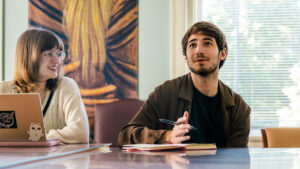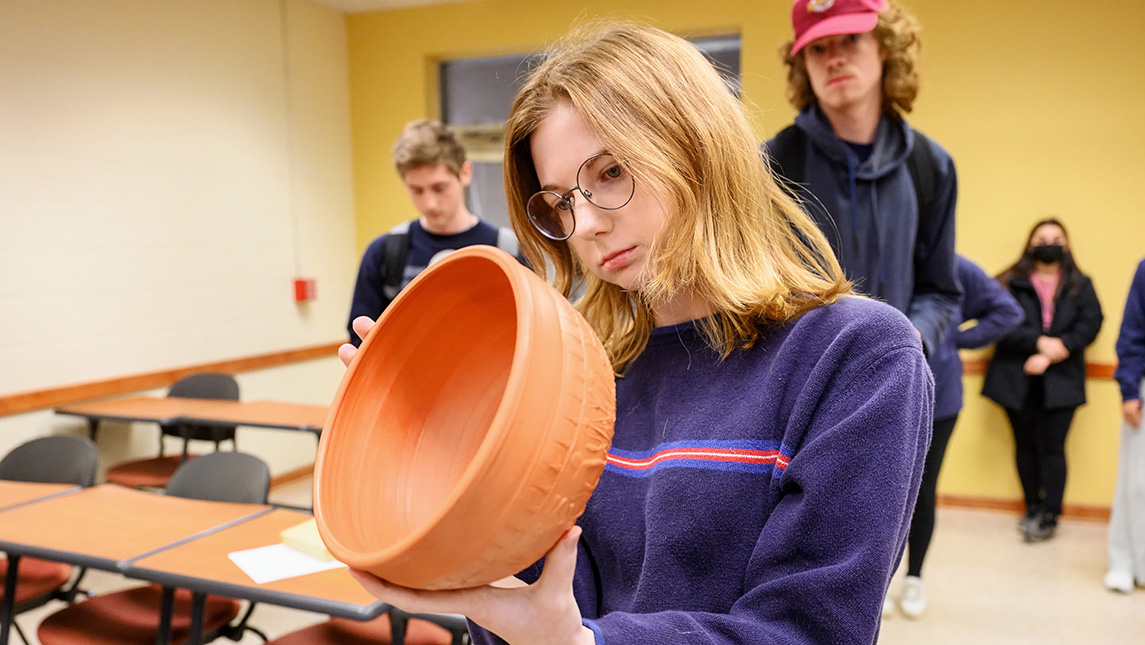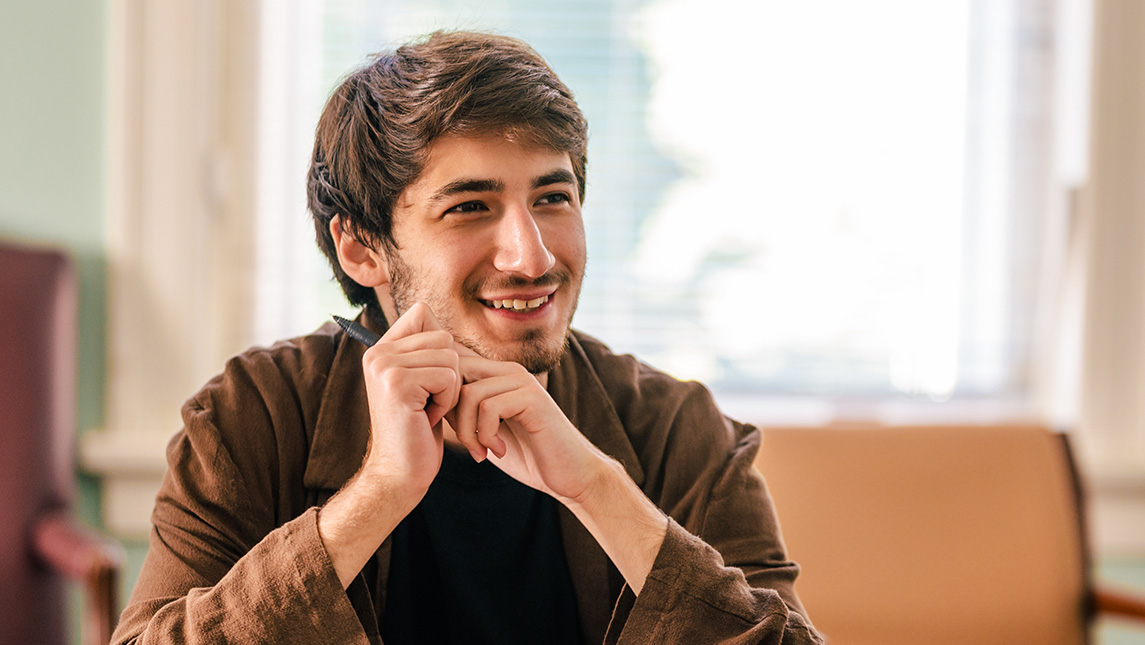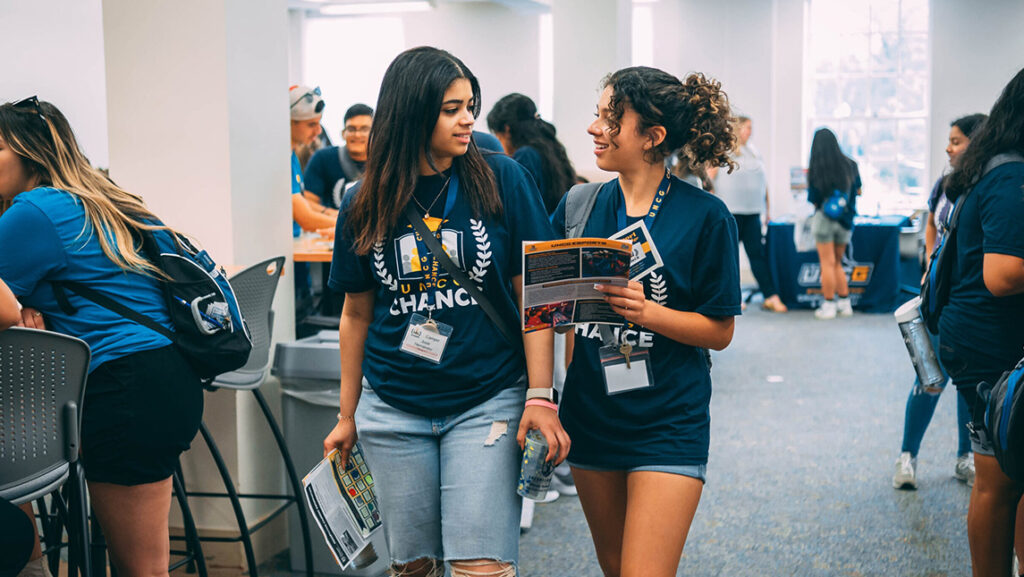As a third-year classical studies major at UNCG, Ethan Divon cares about storytelling. As a gamer, he knows that video games have an unique way of approaching narrative.
“I think that as opposed to most other forms of media, the participants engaging in the storytelling form of video games are active,” says Divon. “You’re not just reading a book; you’re not watching a movie – both of which are great forms of narrative – but you are actually being the character. You are involved in the storytelling process.”
As an undergraduate student, the world of research is new and full of opportunities for Divon to explore and learn. For students with a passion for video games, delving into the realm of video game research can be an exciting and fulfilling journey especially when paired with another subject they love. That is the case for Divon, who is completing faculty-led research on how myths are incorporated into video games. He’s collaborating with Dr. Aisha Dad, a lecturer in the Lloyd International Honors College.
“We’re looking at the ways that mythological texts and stories have been reintegrated and reimagined in the modern imagination, particularly within the world of video games, with the express purpose of trying to figure out how we can use those as an educational tool,” Divon explains.
Divon and Dad would meet once a week and play video games from different genres while analyzing the video game text. For example, Assassin’s Creed: Origins takes place in ancient Egypt, so they would read Egyptian mythology while they played.
UNCG has the largest Classical Studies BA program in North Carolina that focuses exclusively on undergraduate education. Its three concentrations give students a greater understanding of different civilizations, archaeology, languages, and literature of the ancient Greek and Roman worlds.
As the popularity and significance of video games grows, so does the importance of research. The field offers countless possibilities for undergraduates, graduate students, and faculty to make remarkable, real-world contributions and shape the future of gaming, from exploring the effects of video games on mental health to investigating the impact of virtual reality.

Undergraduates can receive funding to engage in research through the Undergraduate Research Scholarship & Creativity (URSCO). By researching video games, students develop helpful skills such as data analysis, critical thinking, problem solving, and working in an interdisciplinary environment. Divon serves as the student coordinator, with Dad as director, for the Classics Gaming Collaborative, a program which supports classical studies students’ gaming-related research and is sponsored by UNCG’s Network for the Cultural Study of Videogaming.
“I do a lot of video gaming as a pastime,” says Divon. “I had not really thought about how you can take video game narratives or other elements outside of gameplay and put that toward education.”
Story by Dana Broadus, University Communications
Photography by Sean Norona, University Communications
Video by Van Walker, UNCG Office of Research and Engagement




